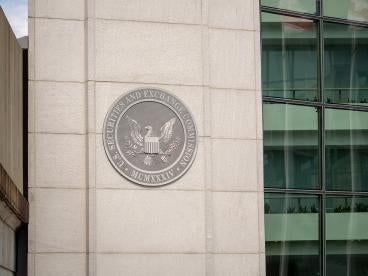On Aug. 26, 2020, the Securities and Exchange Commission adopted amendments to its Regulation D to cautiously expand the definition of “accredited investor” in the Commission’s rules. The change will give additional categories of investors access to certain private offerings of securities that rely upon Regulation D.1 The Commission also made changes to allow some other entities to qualify as accredited investors. The changes become effective 60 days after publication in the Federal Register.
Chairman Jay Clayton noted that: “Today’s amendments are the product of years of effort by the Commission and its staff to consider and analyze approaches to revising the accredited investor definition. For the first time, individuals will be permitted to participate in our private capital markets not only based on their income or net worth, but also based on established, clear measures of financial sophistication. I am also pleased that we have expanded and updated the list of entities, including tribal governments and other organizations, that may qualify to participate in certain private offerings.”
Under the definition as it has operated since the 1970s with only minor amendments, investors were generally required to meet specific tests of annual incomes during the two prior years, or an asset test that was changed only slightly over the intervening decades.2 More than a year ago the Commission requested public comments on possible changes to the definition of “accredited investor.” In the end, it appears that the Commissioners’ considerations focused on two key areas of interest:
-
Should individuals with measurable knowledge and understanding of investments in securities be permitted to qualify as accredited investors, regardless of their personal assets or income?
-
Should the asset-based tests that focus on worth or income be relaxed to permit more individual investors to qualify under the definition?
A divided Commission voted to approve changes to allow knowledgeable persons to qualify as accredited investors, but it did not act at this time to change the asset or income tests. In addition to the financial tests, the amendments allow individual investors to qualify as accredited investors based on defined measures of professional knowledge, experience, or certifications.
-
The amendments to the accredited investor definition permit natural persons to qualify as accredited investors based on certain professional certifications, designations, or other credentials issued by an accredited educational institution. The Commission has identified persons holding examination licenses under Series 7 (general brokerage), Series 65 (investment adviser), and Series 82 (private securities brokerage) as qualifying, and the Commission can add criteria in the future.
-
The amendments add as accredited investors in a private fund natural persons who are “knowledgeable employees” of the fund.
The Commission did not approve a change in the asset and income tests for individuals, reflecting a concern expressed by some commentators that without the requisite knowledge, or the financial resources to obtain the assistance of experts who can advise or represent such investors, access as accredited investors should not be allowed at this time.
The amendments also expand the list of entities that may qualify as accredited investors. The amendments are summarized in the Commission’s release, and:
-
clarify that limited liability companies with $5 million in assets may be accredited investors and add SEC- and state-registered investment advisers, exempt reporting advisers, and rural business investment companies (RBICs) to the list of entities that may qualify;
-
add a new category for any entity, including Indian tribes, governmental bodies, funds, and entities organized under the laws of foreign countries, that own “investments,” as defined in Rule 2a51-1(b) under the Investment Company Act, in excess of $5 million and that was not formed for the specific purpose of investing in the securities offered;
-
add “family offices” with at least $5 million in assets under management and their “family clients,” as each term is defined under the Investment Advisers Act; and
-
add the term “spousal equivalent” to the accredited investor definition, so that spousal equivalents may pool their finances for the purpose of qualifying as accredited investors.
One Commissioner issued a statement indicating her view that the Commission should have gone forward to provide access to additional individual investors, but the Commission was not prepared to take that leap at this time.
The Commission also adopted conforming amendments to Rule 163B under the Securities Act and to Rule 15g-1 under the Exchange Act.
1 Regulation D has always allowed a small number of persons who are “non-accredited investors” to make investments under the rule. However, the added complications of sales to such persons often caused issuers to forgo sales to non-accredited investors.
2 When the Regulation was adopted with an annual income requirement of $200,000, an individual with an annual income of $25,000 was in the top five percent of family incomes in the U.S., and $200,000 was in the top one percent.



 i
i


